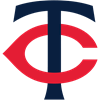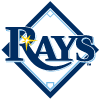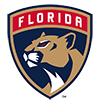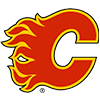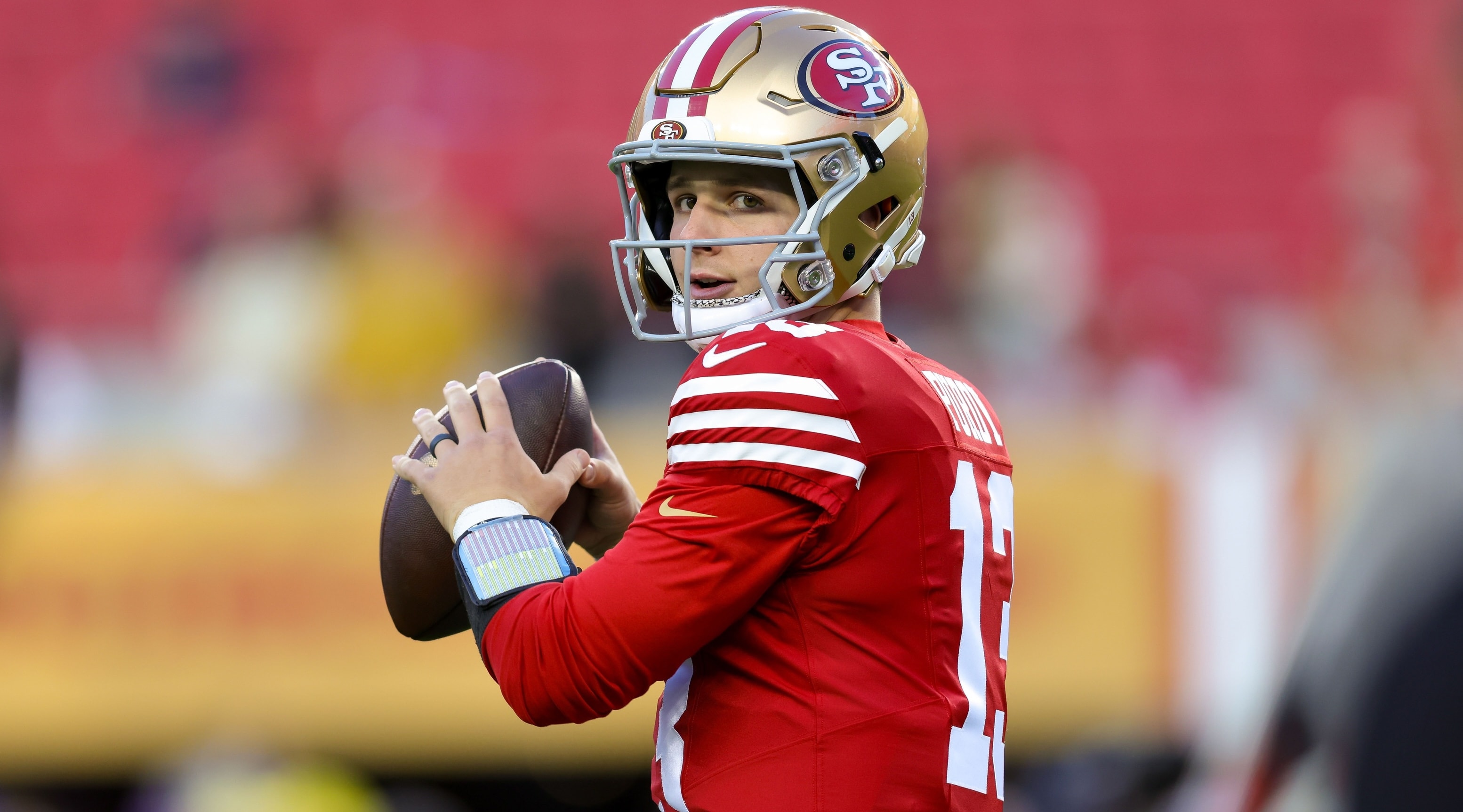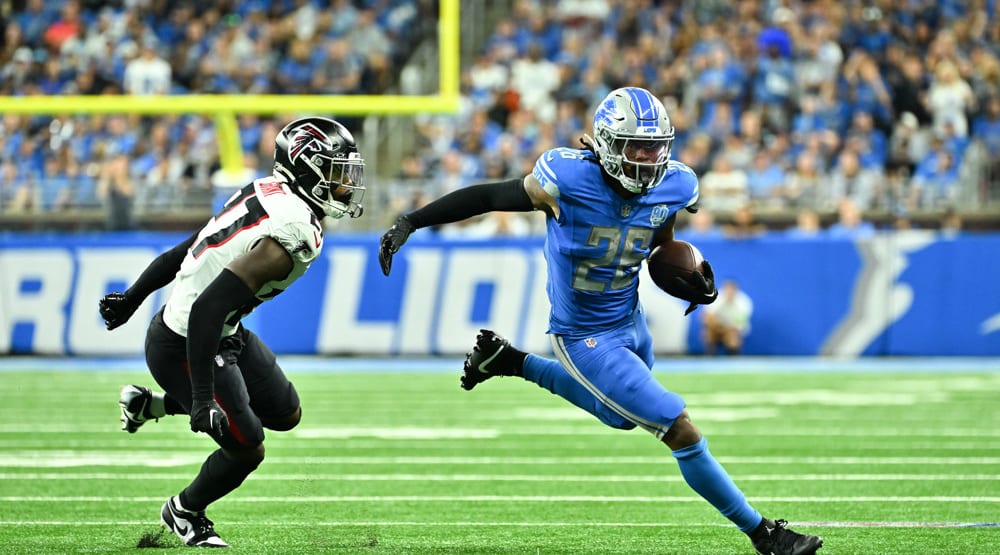New Orleans vs. Jets
As has been the case most of the year, the Saints offense mostly did what it wanted in this game, especially on the ground. Particularly given their indispensability as pass catchers in a New Orleans passing game that rarely falls flat, it's difficult to imagine a scenario where both Mark Ingram and Alvin Kamara wouldn't have high projections. This offense unconditionally runs through them, no matter whether it's the run or the pass that takes precedence in any given game. Prolific as this Saints offense is, it's somewhat tenuously founded – it runs through Ingram, Kamara, and Michael Thomas – and none of their functions can be imitated by anyone else on the team. For now it works, though I'm surprised that the lack of contributing depth on this offense hasn't held it back at all.
Bilal Powell showed up to play in this one, but this offense appears so run-oriented under Bryce Petty that Powell's customary passing game functions might not carry over. Perhaps Powell will project for sufficient carry volume to put up a nice game against the Chargers if Keenan Allen, Philip Rivers' first and second crutch, isn't able to harm Powell's projection by giving viability to the Chargers passing game. There's no shame in Robby Anderson getting slowed by Marshon Lattimore – the young corner is a great one and might be the best corner in the league already.
Cleveland vs. Baltimore
After about a month of encouraging showings, this
New Orleans vs. Jets
As has been the case most of the year, the Saints offense mostly did what it wanted in this game, especially on the ground. Particularly given their indispensability as pass catchers in a New Orleans passing game that rarely falls flat, it's difficult to imagine a scenario where both Mark Ingram and Alvin Kamara wouldn't have high projections. This offense unconditionally runs through them, no matter whether it's the run or the pass that takes precedence in any given game. Prolific as this Saints offense is, it's somewhat tenuously founded – it runs through Ingram, Kamara, and Michael Thomas – and none of their functions can be imitated by anyone else on the team. For now it works, though I'm surprised that the lack of contributing depth on this offense hasn't held it back at all.
Bilal Powell showed up to play in this one, but this offense appears so run-oriented under Bryce Petty that Powell's customary passing game functions might not carry over. Perhaps Powell will project for sufficient carry volume to put up a nice game against the Chargers if Keenan Allen, Philip Rivers' first and second crutch, isn't able to harm Powell's projection by giving viability to the Chargers passing game. There's no shame in Robby Anderson getting slowed by Marshon Lattimore – the young corner is a great one and might be the best corner in the league already.
Cleveland vs. Baltimore
After about a month of encouraging showings, this game marked a major setback for DeShone Kizer. Helpless against a defense that just gave up 500 yards passing the prior week, Kizer struggled to decode the Baltimore defense even as it lacked the personnel to cover Josh Gordon, Corey Coleman, and David Njoku. Beyond that, he dealt with a derailing combination of pressure, passes batted at the line, and shaky accuracy all at the same time. I'm probably biased since I like Kizer as a prospect, but I would chalk up a lot of the results of this game as occurrences largely outside of his control.
Mike Wallace appeared locked in as the team's lead wideout either way, but the knee injury to Jeremy Maclin might open things up for Chris Moore, an unconventional but intriguing prospect who could provide some value before the year's conclusion. Moore couldn't catch any of his three targets in this game, but he caught three passes in each of the three prior contests. Listed at 6-foot-1, 200 pounds, Moore has an outside wideout skill set after proving a lethal deep threat at Cincinnati, where he turned 119 career receptions into 2,301 yards (19.3 YPC) and 26 touchdowns. Moore's speed might only be average (4.53-second 40), so he doesn't project as the same sort of deep threat in the NFL, but his college production hints at a skill set that should generalize to other roles, especially since his other athletic metrics (37-inch vertical, 130-inch broad jump, 6.76-second three-cone drill) generally featured strong marks.
Alex Collins couldn't get much going in this game, but that's because he was going against a good run defense that heavily stacked the box. He should bounce back against the Colts. Collins' sharp uptick in pass-catching production is a very encouraging development for his projections going forward – he's a fantasy RB1 if he's catching passes.
Buffalo vs. Miami
I've had some big misses in my draft and prospect projections, but when they happen it's usually that a player I liked turned out to not be good. It's less common for me to dislike a prospect and for that prospect to turn out good. As far as examples of the latter go, Kenyan Drake might be the biggest miss on my part that I can ever recall. It's not that I thought he had no value – Drake's speed and open-field elusiveness have always sold themselves – but I thought Drake showed a raw running style at Alabama that only played in the open field, with him otherwise showing questionable vision and blocker utilization that would prove a hindrance between the tackles. If the last three weeks are any indication, I either completely misinterpreted the tape or Drake's skill set has improved a great deal since leaving Alabama. I'm trying to convince myself it's the second one, and it's plausible enough – players with developmental upside often develop their skill sets further as they gain experience, and Drake was inexperienced out of Alabama while spending his career behind Eddie Lacy and T.J. Yeldon.
Drake in any case has been very convincing of late, and it would be difficult to argue against him as one of the top picks of 2018 drafts. His combination of burst and quickness can prove lethal when he runs patiently and squared up, particularly when you account for the pass-catching ability he demonstrates. He looks a bit like Willie Parker right now, but probably better.
Jacksonville vs. Houston
Blake Bortles' main issue this year has been accuracy, and for a few weeks now he's shown well on that front. Due to mechanical errors, the yips, or no reason at all, Bortles' accuracy would abandon him without warning earlier in the year, but if he's figured out whatever the previous issue was, there might be reason to think Bortles can maintain his momentum against the 49ers this week. What's especially remarkable of late is the fact that Bortles is starting to make other wideouts the product of his system, whereas we'd normally figure Allen Robinson and Marqise Lee as productive despite Bortles. However promising you might find Dede Westbrook (I'm not especially impressed), when you see big games from names like Keelan Cole and Jaydon Mickens, you know it's not the receivers making the quarterback look good.
Mickens is very quick, but he's an undersized, former undrafted slot wideout with a poor size/speed variable. He might never catch another touchdown pass in the NFL, so I'd say the two from this game were the definition of fluky. Cole is more convincing – the undrafted rookie was very productive in college and has done well to this point in the NFL – but even he has a box score that doesn't align with his prospect profile. A skinny wideout with dubious long speed (~4.6-second 40), Cole's skill set of quickness over speed tends to project to the slot, despite how much his frame would normally play outside. With a YPT of 9.8 and YPC of 19.0, though, you might look at Cole's stats and take him for more of an ostensible downfield burner like Westbrook, when in actuality Cole is more likely a slow target whose length and quickness fit better in the slot like Allen Hurns. In any case, if Hurns and Marqise Lee are sitting this week, both Westbrook and Cole should see continued targets. Given the redundancies in their skill sets, I would guess the odds of Cole and Mickens producing at the same time are quite poor going forward.
Giants vs. Philadelphia
Even at his best, Nick Foles is a Derek Carr-style dink-and-dunk quarterback. He was at Arizona, and in this Philadelphia offense, too he operates best as a spread-formation passer who chips away at underneath openings. Limiting as this factor may be, Carr has shown there is some level of utility in this sort of play when done correctly, and Foles is in the right offense to make it work. This might not be great for the YPTs of Alshon Jeffery and Zach Ertz, who may see their depth of target drop a bit, but the volume should be almost entirely stable. Nelson Agholor, meanwhile, is set to actually benefit as the slot wideout in this offense, projecting him as a primary safety blanket of Foles'. With 32 targets over the last three games, Agholor is setting the stage for a multi-year run as one of the best fantasy wideouts in the league.
That this game wasn't a breakout setting for Jay Ajayi is quite frustrating, and an indication that it might never happen in Philadelphia, at least not on any basis that anyone can foresee. He's effective, but LeGarrette Blount, Corey Clement, and Kenjon Barner remain too involved for Ajayi to project reliably for any particular range of volume. It's stunning that a team as successful as Philadelphia would make a personnel move as objectively dumb as trading a fourth-round pick for roughly eight carries per game. They also wasted a fourth-round pick on Donnel Pumphrey. Vindicated as they look of late, the Eagles front office needs to improve its process.
Eli Manning's breakout game was a bizarre thing to witness against a Philadelphia pass defense that's generally done well of late, and a pass rush that's been ruthless all year. As far as I can tell, the main difference between this game and Manning's tank game against Dallas was the coverage approaches of the two defenses. Dallas ran a lot of zone coverages that specifically looked to clog the middle of the field, where Manning's two crutches, Sterling Shepard and Evan Engram, run almost all of their routes. There's very little outside or downfield ability in this group of pass catchers, so it's a sensible approach, and it worked brilliantly. The Eagles, by contrast, ran a lot of man coverage with enough blitzing that there wasn't always a lot of safety or linebacker help. This resulted in a thin margin of error for Manning – little time to throw, and his targets not always open – but he repeatedly took advantage of the man coverage by hitting Shepard and Engram on perilous but well-timed throws under pressure. With another man coverage defense up next in Arizona, I'm somewhat optimistic of the Giants passing game this week.
Orleans Darkwa got the rushing score, but Wayne Gallman appears the better back for this offense. He's certainly better as a pass catcher, as he's up to 13 catches for 80yards on 16 targets over the last two weeks. The Cardinals are allowing over six yards per target to running backs this year, so perhaps Gallman can keep it going a third week.
Washington vs. Arizona
As someone who picked a lot of Kirk Cousins and Jamison Crowder in DFS, this was a frustrating game for me. The Washington passing game was making easy work of the Arizona defense, but they never had the ball! As so often occurs in the NFL, a few wacky plays set up a sequence of stumbles and problematic field positioning, dragged out over an implausibly long stretch of clock, that pretty much erased entire quarters without any noticeable events occurring.
This dynamic was exacerbated by the fact that Arizona couldn't block the Washington pass rush, or at least, Blaine Gabbert couldn't throw the ball before getting sacked, so Arizona went with a Kerwynn Williams-heavy game plan that ate clock but went nowhere. The grabby Washington corner rotation predictably was an issue for Larry Fitzgerald, who more often gets open with size nowadays than with true separation. That left Ricky Seals-Jones as the only viable pass-catching matchup for the offense, against a Washington defense that can't cover tight ends, but Gabbert couldn't get it to him, either. Gabbert's profound limitations might be a problem even against the weak Giants defense this week, especially if they put Dominique Rodgers-Cromartie on Fitzgerald (they almost certainly will).
Carolina vs. Green Bay
Jamaal Williams runs hard, and he seems to do a good job both with blitz pickup and pass-catching out of the backfield. Useful as those traits might be, I'd guess that's the extent of his strengths. His frame isn't dense enough to project as a sustainable high-volume power backs, and Aaron Jones and Ty Montgomery are both superior pure runners.
Devin Funchess' invisibility in this game was quite a letdown, and Greg Olsen's reemergence was a big reason why it happened. Funchess' usage in the Carolina offense was mammoth prior to this game, but it was largely the result of the shortage of alternative pass catchers. Olsen apparently is healthy enough to present a new alternative, and the emergence of Damiere Byrd is another variable of slight concern to Funchess. Byrd is like a poor man's Tyreek Hill, which could still prove useful as the WR2 in this offense. With 4.30 speed and the ability to jump out of the gym, Byrd's tools could dictate surprisingly mainstream fantasy utility if he keeps hovering around five targets per game. The big plays haven't happened yet, but Byrd was known as a deep-route specialist at South Carolina.
Seattle vs. Rams
Mike Davis had a very disappointing game, but I'd chalk it up to the highly unanticipated blowout game flow rather than anything under his control. He showed an encouraging enough combination of quickness and anchor strength, and his pass-catching abilities otherwise round out a useful skill set that should prove productive under more favorable circumstances, perhaps starting with this week's game against Dallas.
Maybe it would have gone just as badly for Seattle either way, but you have to wonder how things might have looked if Tanner McEvoy hadn't lost a fumble on Seattle's first drive. The offense was stepping into a bit of a rhythm until that point, and not much went right after that. Jimmy Graham stunted a subsequent first quarter drive by dropping what would have been a first down catch in Seattle territory. Russell Wilson dealt with an imposing pass rush, but he also didn't appear particularly sharp in his own right. It looked like he made questionable decisions with some of his early reads, throwing to covered targets or tangling with the pressure while preferable courses were perhaps overlooked. Graham clearly isn't the same athlete he was before his patellar tendon tear.
It's easy to look at a game like this and conclude that Robert Woods is the WR1 of this offense, but his touchdown was somewhat fluky in that it was a no-huddle play, perhaps on a hot route, where the Rams rushed to the line upon spotting man coverage, then ran a pick into Woods' corner with tight end Tyler Higbee, leaving Woods uncovered while the Seahawks were scrambling just to get into position on the play. Cooper Kupp still looks like the lead wide receiver in this offense, if only from Jared Goff's read tendencies, if not the play designs. That Woods typically sees lesser corners and on shorter routes than Sammy Watkins makes Woods no less than the WR2 in this offense, however, given Goff's tendency to look underneath.
Todd Gurley is always a terror in the open field, and he found it often as the Rams offensive line pummeled the Seattle front seven from start to finish in this game. The only way to stop Gurley is to swarm with sound gap coverage, because he'll sometimes struggle to read the defense if there isn't an obvious opening. The Seahawks repeatedly let Gurley isolate one-on-one faceoffs at the second level and beyond, though, and his raw skill in the open field makes him just about impossible to stop in those scenarios. With the Rams offensive line blocking like this and Gurley scorching hot otherwise, it's hard to see him slowing down.
Pittsburgh vs. New England
I've been critical of Ben Roethlisberger this year, but I thought he looked good in this game. This Patriots defense is much better than the one we saw earlier this year, and they forced Roethlisberger to actually make some plays instead of simply leaning on the skills of Antonio Brown and Le'Veon Bell. If Brown misses time, the Steelers would be smart to use Martavis Bryant downfield as much as possible – they still use him too much on underneath routes, where his lanky frame and shaky hands can prove a liability. Just take advantage of his unmatched length and speed by sending him deep almost every pass play. I would imagine Juju Smith-Schuster is the clear WR1 if Brown sits, though. Bryant just can't run a lot of the routes that Brown does.
The Steelers played a bend-but-don't-break scheme on defense, occasionally showing press coverage on third downs but otherwise playing with the safeties extremely deep, seemingly daring the Patriots to run the ball. This approach might be the only reason that Brandin Cooks didn't have a big game against vulnerable corner Artie Burns.
Particularly with Rex Burkhead's knee sprain, Dion Lewis is looking awfully good at the moment. With James White otherwise fading into the background of late, Lewis could see something close to a workhorse role if Burkhead sits. Perhaps White will simply step up to account for that slack, but he appears to have specifically distinguished functions from Lewis and Burkhead in this offense.
San Francisco vs. Tennessee
Marquise Goodwin has been one of the best stories in the league this year, and a great case study on what happens if you take a raw player with plus tools and feed them every rep they can handle. Even Goodwin's greatest proponents would have all along conceded that he was exceptionally raw as a prospect – truly a track star trying to play football. But this Olympic-caliber athlete's raw skill set turned out to be something of a tautology in that he was raw because he hadn't played. The 49ers signed Goodwin away from Buffalo and, particularly after Pierre Garcon's injury, put as much as possible on his plate, and now we're seeing Goodwin make gains on a weekly basis, culminating in this ten-catch effort. Blazing fast with flight-like leaping ability, Goodwin is no longer unharnessed athleticism but rather a complete and still-improving starting receiver. He'll likely never be a WR1 by design – he would ideally settle in as a field-stretching WR2 – but we still don't know how good he might get. He hasn't stopped improving yet.
It certainly helps Goodwin's development that he has Jimmy Garoppolo around. Garoppolo has been utterly convincing as a fit in the Kyle Shanahan offense, and the trade to acquire him is looking like a strong move on San Francisco's part. With Garoppolo, Goodwin, and Garcon coming back next year, this offense will be one to target for fantasy purposes.
Talking about Marcus Mariota this year has been nauseating, and if I hadn't already seen him tank against Cleveland and Houston, I might have found this game alarmingly disappointing for Mariota. Even if I can't substantiate it with much, I stand by the assertion that Mariota is a very good player and the problem is Mike Mularkey and his Tecmo Super Bowl understanding of the game. No one's ever open, everything is dreadfully slow and unsurprising – this team will just continue to decay under Mularkey. What a joke.
Oakland vs. Dallas
Alfred Morris and Rod Smith did a good enough job with Ezekiel Elliott suspended, but now their fantasy utility is back in the basement. Given his pass-catching skills and standout size/athleticism, Dallas should seriously consider using Smith like a pass-catching tight end given the void of other pass catchers in this offense.
Dak Prescott didn't have a good game, with his first interception occurring on an overthrown slant to Dez Bryant, who would have been annihilated by a defender even if the ball were on target. Poor decision and execution both. With both of his tackles playing hurt and an angry Seahawks team up next, I'm not optimistic about Prescott's chances of finishing the year on a high note.
Whereas I can rationalize Prescott's problematic showings this year as due to his bad surrounding pass catchers, I can't think of much to get Derek Carr off the hook. He just can't throw downfield. And if you can't throw downfield, you can't be better than average. That Carr has stalled around 7.0 YPA for three years straight means that we might need give up on the hope of his skill set progressing further. This just looks like a hard-line limitation. He even missed an uncovered Michael Crabtree on a five-yard slant on a third-down play. How do you do that? Marshawn Lynch has looked very good all year, so it's disappointing that he burned what might be his final pro season on a team as dumb as this one.









